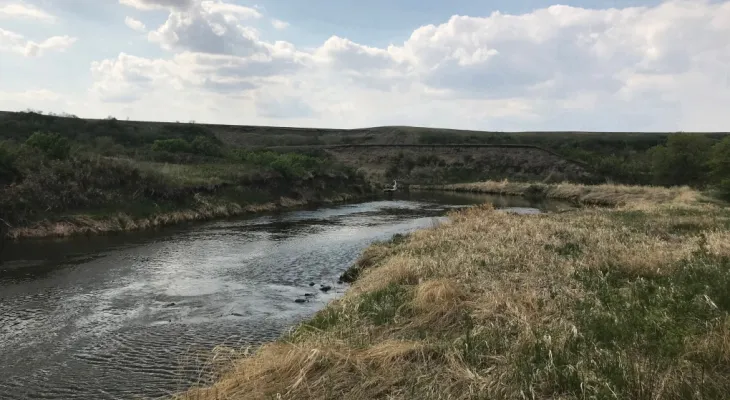Search here
Newspaper
Search here

Arab Canada News
News

Published: January 6, 2024
A new study has shown that living close to green and blue spaces in urban areas may be associated with improved physical and mental health among the elderly.
Researchers from Washington State University led the study, which was published in the journal Health & Place on Thursday, based on survey data from more than 42,000 people in urban areas of Washington State from 2011 to 2019.
The researchers said that access to as little as 10 percent of forest area in a person's postal code is associated with reduced mental health problems requiring treatment and affecting the person's personal and professional life.
The study also showed that access to 10 percent more green space, tree cover, water bodies, or long trails reduces the likelihood that the elderly will report their general health as poor or fair.
Edithia Vijaragu, the study's author and a medical student at Washington State University (WSU), said in a press statement that the results we have reached indicate that the loss of our urban green and blue spaces due to rapid urbanization may not only have an environmental impact, but can also have an effect on public health.
Other studies on this subject have analyzed the extent to which living near nature affects public health; however, Vijaragu said this is the first to focus on the elderly in the United States, adding that the elderly are particularly vulnerable to depression and other mental health problems, which have been shown to increase the risk of dementia and cognitive decline.
She continued: "It is known that the elderly suffering from depression, anxiety, or mental health problems are more resistant to medical interventions or modern therapy, which are the preferred treatments for these conditions," "so if exposure to green or blue spaces can help prevent, delay, or even treat poor mental health in the elderly, we need to look closely at that as a way to improve mental health outcomes in this population group."
Based on the study, Vijaragu suggested that healthcare providers can prescribe outdoor time as a potential means to alleviate mental health problems in the elderly — a growing trend known as "nature prescriptions."
More research should be conducted in this field to understand the precise relationship between proximity to nature and mental health, according to Solmaz Amiri, the first author of the study, assistant research professor at WSU Elson S. Floyd College of Medicine, and researcher at the Institute for Research and Education to Advance Community Health.
Amiri said in the statement: "Exposure to green and blue spaces is believed to help slow cognitive decline," "what we would like to know is whether exposure to green and blue spaces can directly affect dementia or whether it can do so by reducing mental health problems that may lead to cognitive decline."
Amiri added that she hopes these findings will help low-income individuals who may not have equal opportunities to access green and blue spaces in their community if they live in urban areas.
Comments